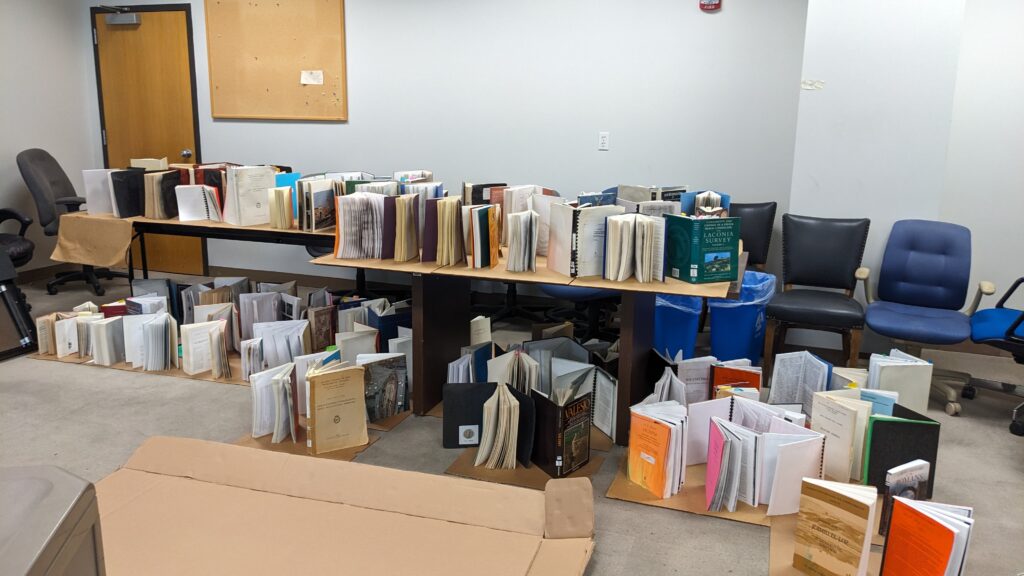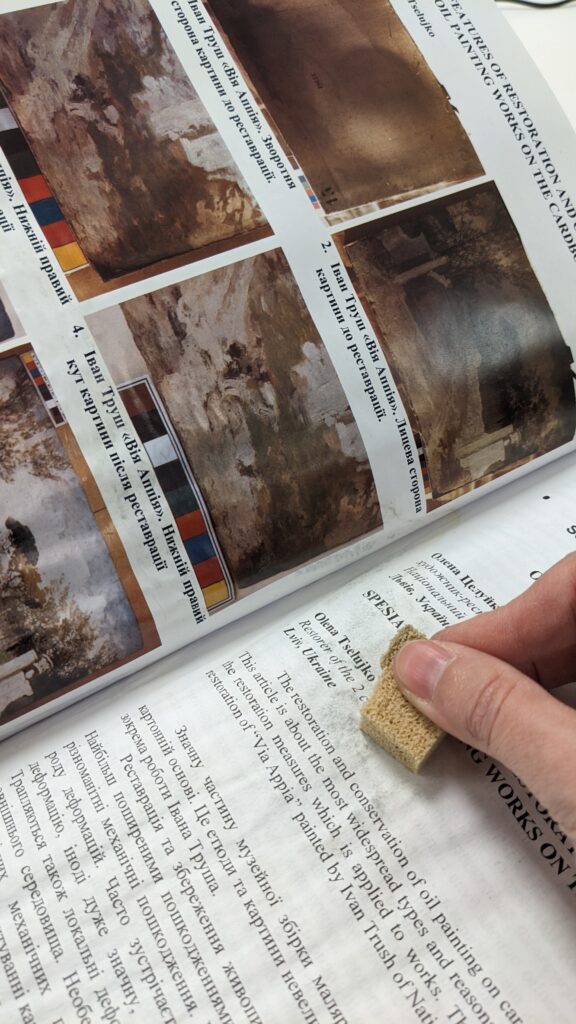This semester, students in my Disaster Planning and Response course are lending a hand with a real-life emergency. A water leak at UT’s Institute of Classical Archaeology caused many of their library materials to become waterlogged and moldy. I joined UT Preservation Librarian Brittany Centeno on the scene, where the books had been moved to a nearby room.
Since many of the books were still wet, Brittany and I stood them on end and fanned out the pages, while a facilities manager brought a large fan to increase air circulation. This first step in water disaster response helps decrease the ongoing risk for mold growth.

Then came a discussion with collections caretaker Adam Rabinowitz to determine next steps. Some books were deemed replaceable; others were important to salvage, as they contained scholarship from less accessible regions. Salvage candidates were routed to Brittany’s preservation freezers to halt the progression of water damage. From there, books that were valued primarily for their informational content went for preservation scanning.
The remaining volumes came to my students for mold remediation. Working with a HEPA-filtration vacuum, soot sponges, and brushes, my students practiced their skills removing mold. We also encountered many examples of blocked pages: leaves of clay-coated paper that become irreversibly stuck together after water exposure. This offers the students real-world perspective on what’s achievable through varying methods of disaster response.

We’re so glad for this opportunity to work with Adam and Brittany as our students prepare for their own careers as librarians, archivists, and preservation professionals!
